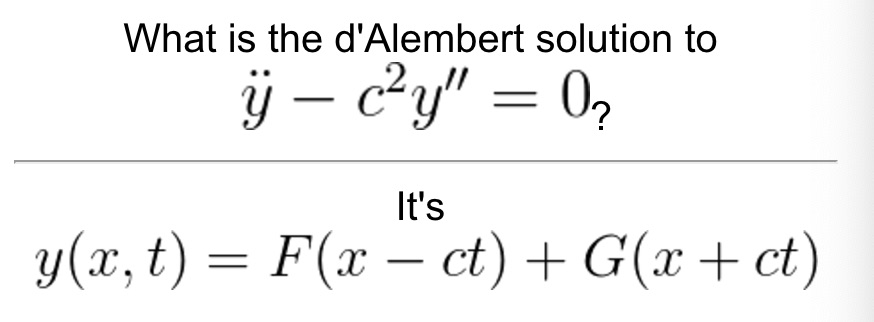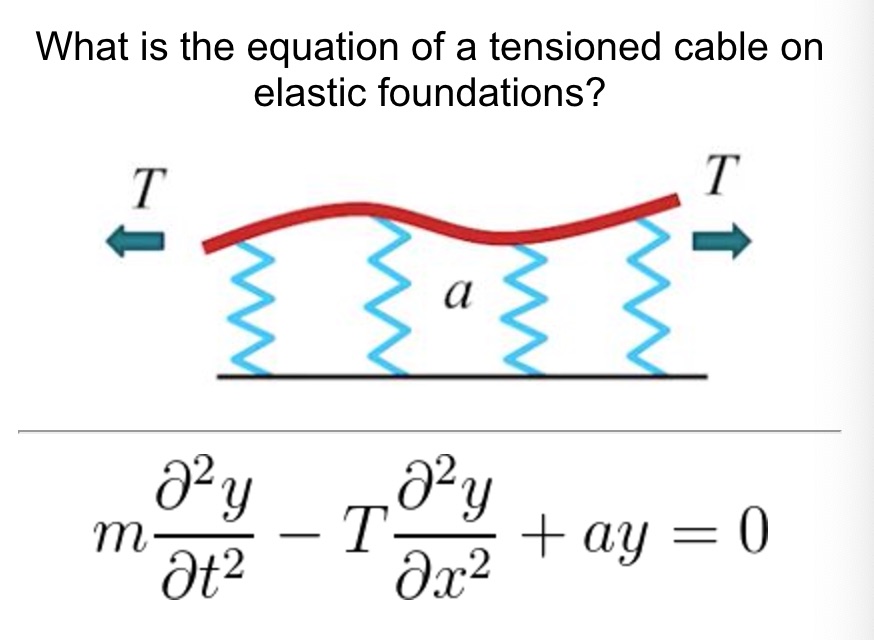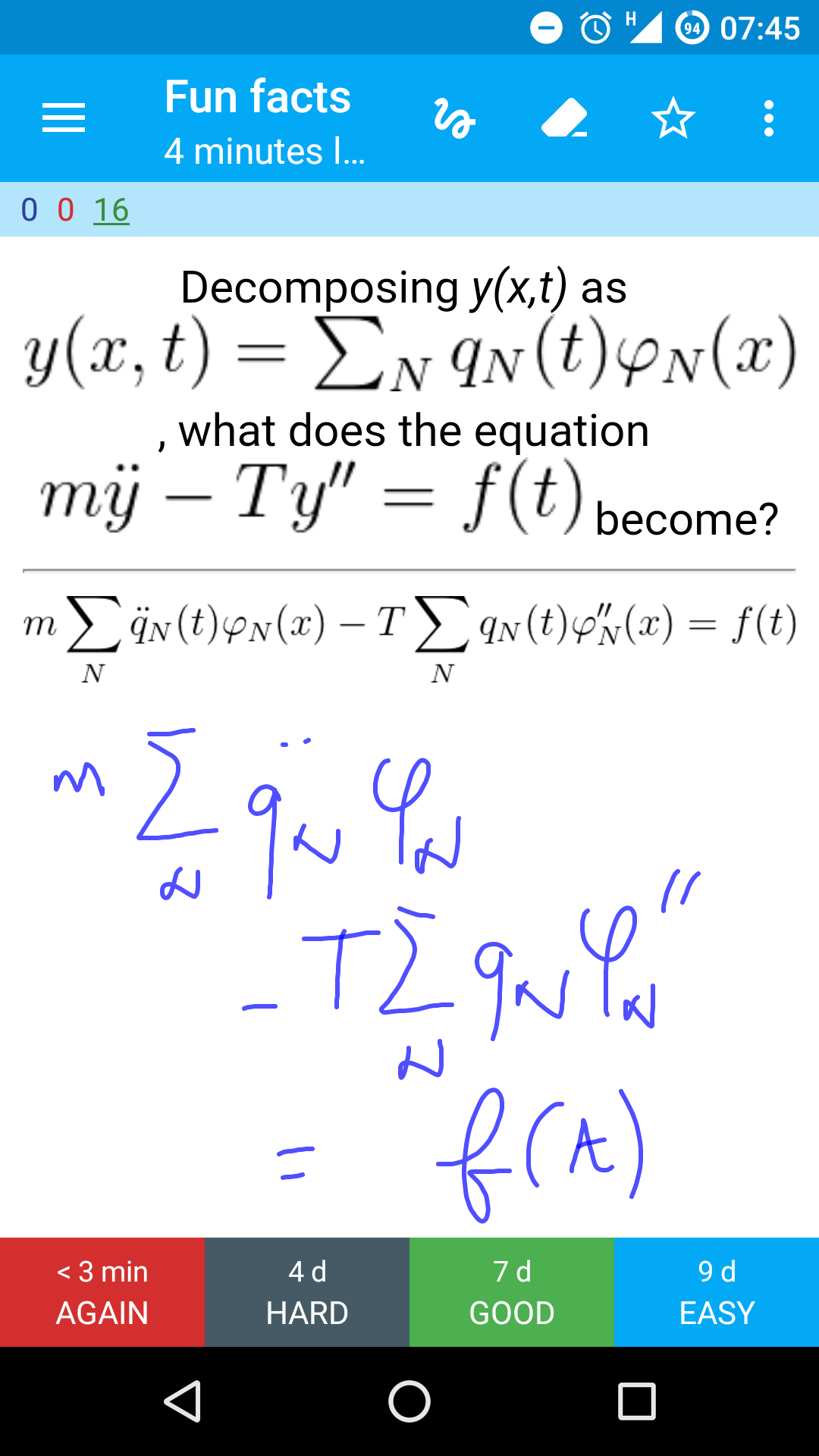Anki and the MOOC Fundamentals of waves and vibrations
Fundamentals of waves and vibrations is a MOOC organized by Ecole Polytechnique (and available through Coursera) that takes the learner through a great many wave phenomena: pressure waves propagating in the air when we talk, waves at the surface of the ocean, vibrations of strings, of beams... As the course description says, waves are everywhere and the aim of the class is thus to teach the learner some of the fundamentals about the analysis of these phenomena in six weeks.
Although I'm a researcher in physics and have acquired a lot of practical knowledge about wave phenomena, I've found this class to offer tremendous value. I went through the class in about seven weeks (I was one week late) and finished it with a grade of 91%. This was not my first MOOC and what set this one apart for me was that I tried to combine the class with the use of the Anki flashcards app.
Even though I have been using Anki for about 10 years to learn Japanese, it never occured to me that I could use Anki to learn scientific topics until I read an essay by Michael Nielsen called Augmenting long-term memory. In short, the essay opened my mind about how memory is a central aspect of thinking and understanding - or as Michael Nielsen says:
But I now believe memory is at the foundation of our cognition.
Memory could thus serve to make your more "fluent" in thinking. To test this hypothesis, I've decided to apply Anki as a tool for learning the content of the MOOC Fundamentals of waves and vibrations.
How did I implement this? I tried to stick to the guidelines formulated in the essay:
- make questions as atomic as possible
- use screen captures of some of the plots found in the class
- try to frame questions from multiple angles to enhance learning
I ended up with a bit over 60 cards from this class. Below are two examples cards:

To quote the course professor: "Thank you Mr d'Alembert for this solution".

I'm finally able to write a wave equation on my colleague's blackboards without looking it up on Wikipedia...
As you can see in the above cards, I've made liberal use of LaTeX support in Anki. Since I review the cards on my cell phone, I then use a stylus to write the equations on the screen before showing the answer of the flashcard. I find this a very enjoyable way to write math formulas. Below is a screenshot of what it looks like in practice:

I found the overall design of the MOOC well done. The videos were usually short and very clear. It was enjoyable to have three different professors explain the various topics. At the end of each week, research topic videos showed PhD students or researchers from Ecole Polytechnique presenting some of their work, some of which was fascinating - I'm thinking of the dynamic analysis of trees as well as the research on boat waves beyond the Kelvin wake.
Finally, the last quizz took the student by the hand to solve a 4-pendulum problem using the modal approach, the fundamental concept in this class. This really was my favorite part, since I hugely enjoy seeing plots and animations coming to life from "pure equations". For example, here's the animation I ended up producing in the final exam.
If I had to say one thing that was not as nice as what I said above, I would have to mention the forums. I was surprised how empty they seemed: it looks like only a couple of students have taken this MOOC or are interested in the topic (the instructors nonetheless always replied to questions while I watched it).
Having said that, I'm now looking forward to my next MOOC. A very plausible candidate would be the Fluid solid interaction class, also by Ecole Polytechnique and the same professors as the one I've written about here. I'll end this post by saying that I can't recommend this class highly enough. It's full of nicely explained math and physics. Regarding the use of Anki for MOOCs, I can already feel that it has made a difference in how much I remember about this class. I'm now thinking that Anki will have a profound influence on the way I'll remember what I've learned here (at least that's what I'm hoping!).
If you're interested in the Fundamentals of waves and vibrations, here's its teaser!